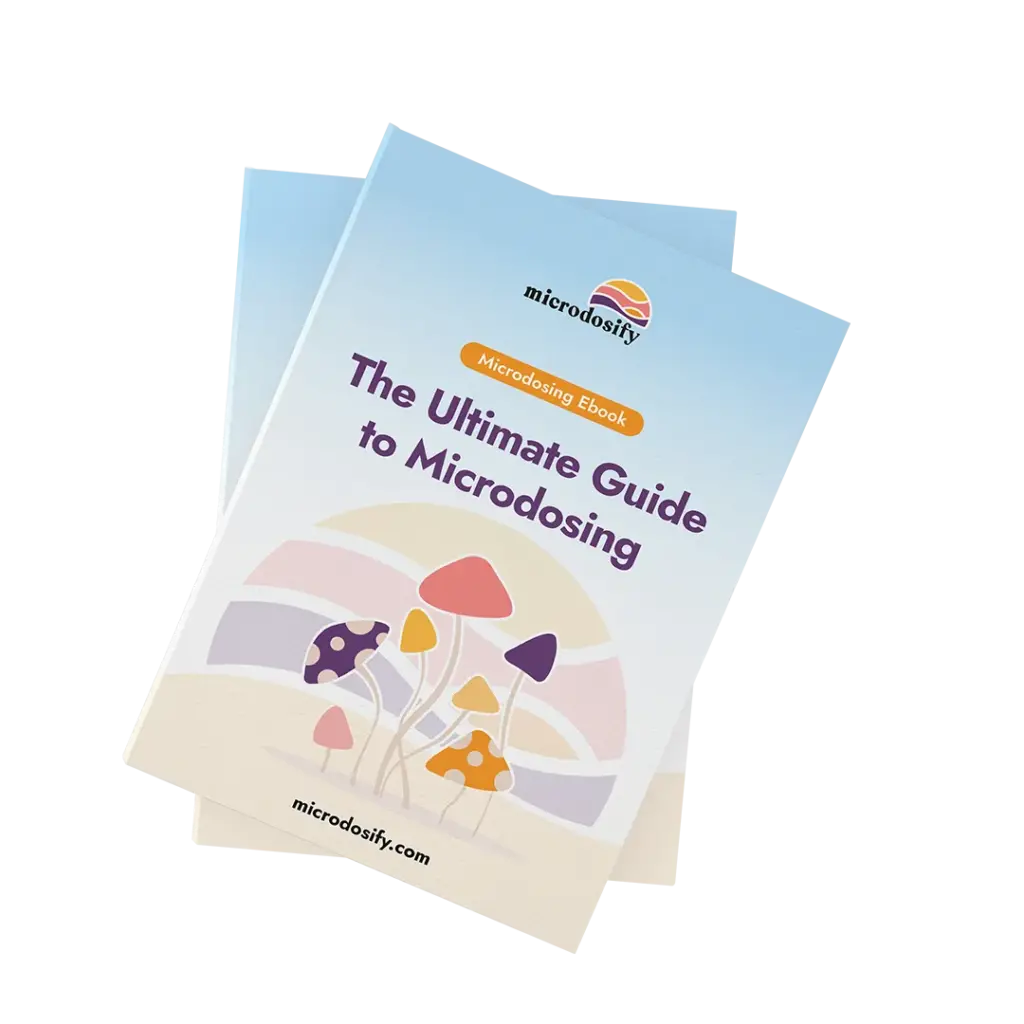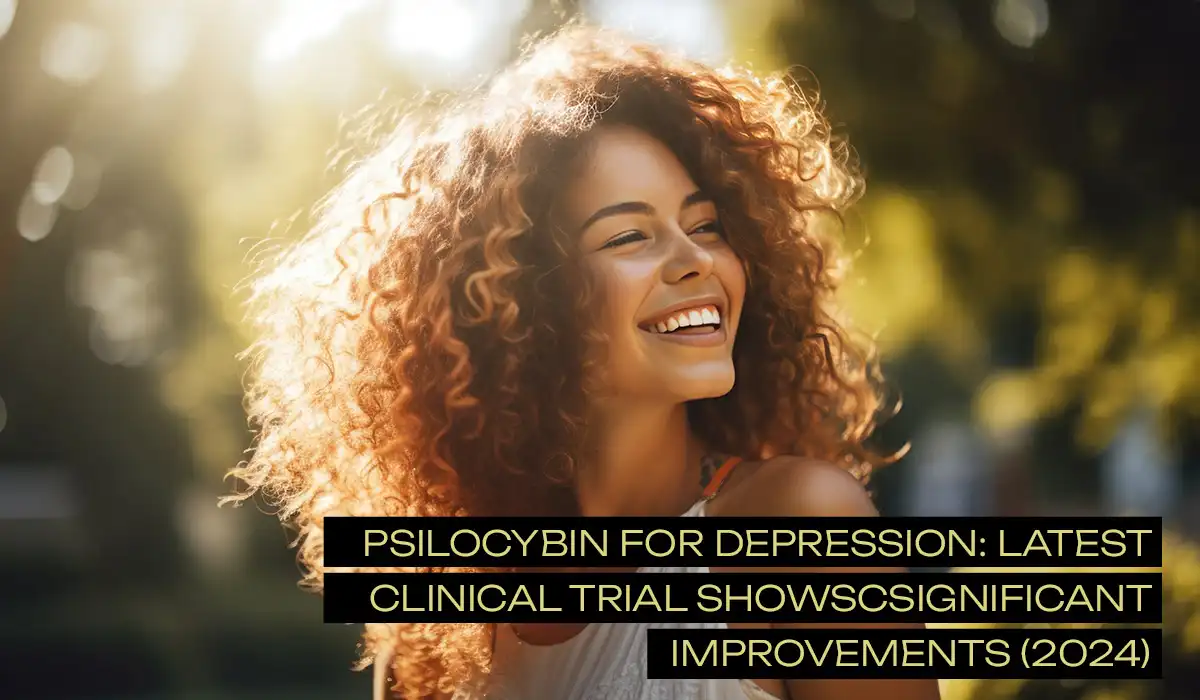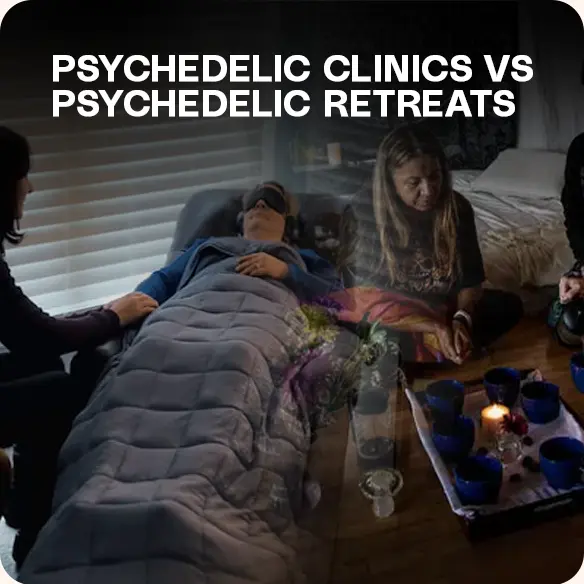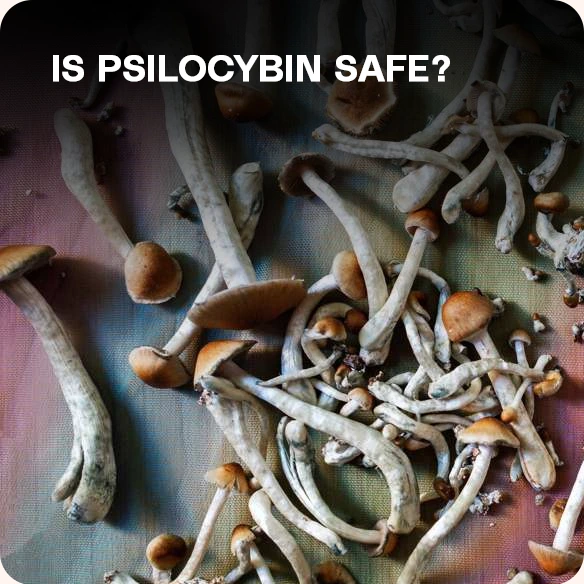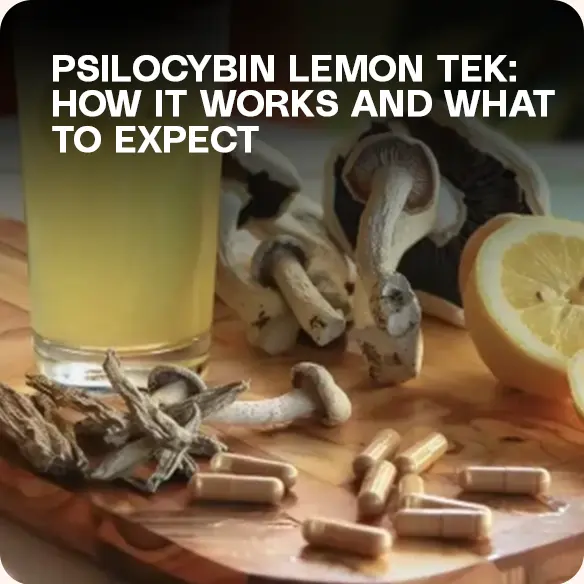This guide explores the potential benefits of mushrooms for treating depression. Learn about different types of mushrooms used for depression, the psychedelic effects on the brain, and the research and methods of taking mushrooms for mental health.
Key Takeaways:
- Mushrooms have been shown to have potential benefits in treating depression through their effects on brain function, neuroplasticity, and inflammation.
- Research has shown that certain types of mushrooms, such as Psilocybin and Lion’s Mane, may have antidepressant effects.
- Microdosing and macrodosing are two methods of taking mushrooms for depression, with different benefits and risks.
Understanding Depression and Current Treatments
Understanding depression involves recognizing a complex mental health condition that affects millions of people worldwide, characterized by persistent feelings of sadness, hopelessness, and a lack of interest in activities, alongside physical symptoms like changes in sleep, appetite, and energy levels, making it a significant challenge to manage without effective treatment options such as antidepressants, therapy, and lifestyle changes.
Types of Mushrooms Used for Depression
Psilocybin mushrooms and Lion’s Mane, have shown promise as therapeutic agents for depression.
- Psilocybin mushrooms, also known as magic mushrooms, contain the psychoactive compound psilocybin, which has been studied for its potential to relieve symptoms of depression and anxiety.
- Lion’s Mane mushrooms are known for their neuroprotective properties and ability to stimulate nerve growth factor production in the brain, which could benefit cognitive function and mental health.
Research on the therapeutic benefits of psilocybin mushrooms stems from studies showing their capacity to induce mystical-type experiences that may lead to long-lasting positive changes in mood and outlook.
Similarly, Lion’s Mane mushrooms have attracted attention for their potential to support brain health and potentially improve symptoms of anxiety and depression.
How Can Mushrooms Help with Depression?
Mushrooms can help with depression by influencing brain chemistry, promoting neuroplasticity, and reducing inflammation, which are all critical factors in managing mental health.
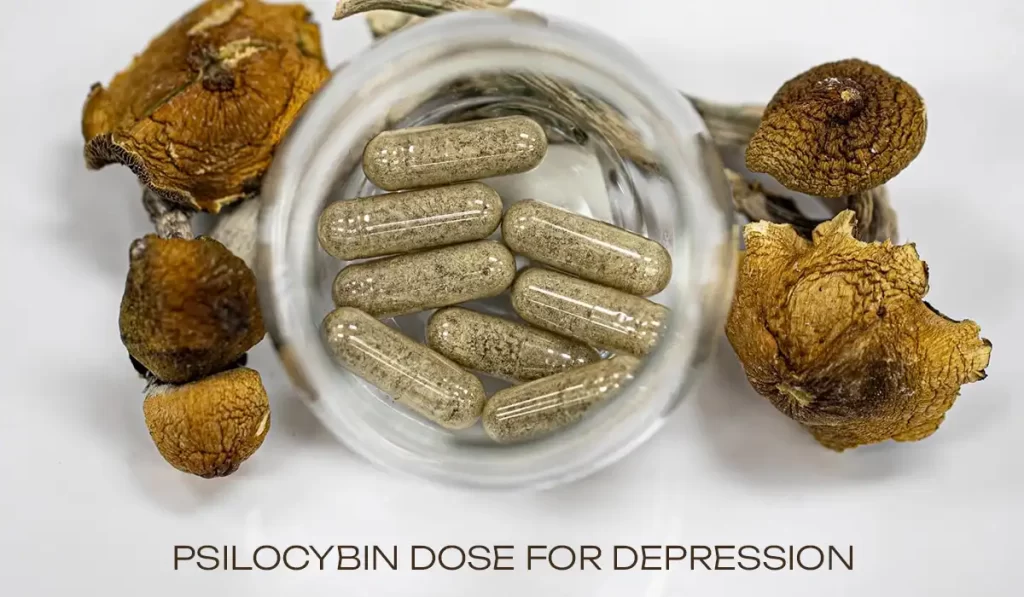
Psychedelic Effects on the Brain
The psychedelic effects of psilocybin on the brain include alterations in perception, mood, and cognition, which can contribute to therapeutic outcomes in depression treatment.
Psilocybin, the active compound in magic mushrooms, binds to serotonin receptors in the brain, specifically targeting the 5-HT2A receptors.
This interaction leads to changes in communication between brain regions, enhancing connectivity and allowing for novel insights and perspectives.
The altered perception and mood induced by psilocybin can lead to breakthroughs in therapy and promote introspection, potentially helping individuals gain a new outlook on life.
Boosting Neuroplasticity and Mood
Psilocybin mushrooms have been found to boost neuroplasticity, the brain’s ability to reorganize and form new neural connections, positively influencing mood and mental health.
Neuroplasticity shapes our brains throughout our lives, allowing us to learn, adapt, and change. Psilocybin, the psychoactive compound in magic mushrooms, has shown promising results in studies, suggesting that it can enhance this plasticity.
This enhanced neuroplasticity can lead to long-lasting changes in the brain’s structure and function, potentially offering new avenues for treating various mental health conditions, including depression.
By promoting the growth of new neural connections and breaking down rigid patterns of thinking, psilocybin may offer a fresh perspective and relief to those struggling with mood disorders.
Reducing Inflammation and Stress
Therapeutic mushrooms, including psilocybin varieties, may help reduce inflammation and stress, both of which are linked to depressive disorders.
Inflammation is the body’s natural response to injury or infection, but chronic inflammation can have damaging effects on mental health, potentially contributing to conditions such as depression.
Stress, on the other hand, plays a key role in triggering and exacerbating depressive symptoms, adding to the complexity of managing the condition. By targeting these underlying factors, mushrooms like Reishi, Lion’s mane, and Cordyceps offer promising therapeutic potential.
Research on Mushrooms for Depression
Research on mushrooms for depression is expanding rapidly, with numerous studies investigating the effectiveness and safety of various mushroom species, particularly psilocybin mushrooms, in relieving depressive symptoms.
Studies on Psilocybin Mushrooms
Several clinical trials have demonstrated that psilocybin mushrooms can significantly reduce depressive symptoms in patients who are resistant to traditional treatments.
For instance, a recent study published in the Journal of Psychopharmacology utilized a double-blind, placebo-controlled design to investigate the effects of psilocybin on treatment-resistant depression. The findings revealed that participants who received psilocybin experienced a substantial decrease in depressive symptoms compared to those in the placebo group. Another study conducted at Johns Hopkins University also indicated that psilocybin-assisted therapy led to long-lasting improvements in mood and overall well-being.
Studies on Lion’s Mane Mushrooms
Studies on Lion’s Mane mushrooms have shown that they may offer neuroprotective benefits and support mental health, potentially alleviating symptoms of depression.
Recent research has been focused on the active compounds found in Lion’s Mane mushrooms, such as Hericenones and Erinacines, which are believed to stimulate nerve growth factor (NGF) production. NGF plays a crucial role in the growth, maintenance, and survival of neurons in the brain. This unique property has caught the attention of scientists studying neurological conditions and mental health.
Several studies have provided promising evidence supporting the use of Lion’s Mane mushrooms in enhancing cognitive function, memory, and overall brain health. These findings have opened up new possibilities for leveraging this natural remedy in the realm of mental health treatment.
Methods of Taking Mushrooms for Depression
Various methods of taking mushrooms for depression, such as microdosing and macrodosing, offer different therapeutic effects and potential benefits, depending on the individual’s needs and circumstances.
Microdosing Mushrooms
Microdosing mushrooms involves taking very small, sub-perceptual doses to improve mood, creativity, and overall mental health without experiencing the full psychedelic effects.
Many individuals who practice microdosing report increased focus, productivity, and emotional stability. Some even claim that it helps alleviate symptoms of anxiety and depression.
The main difference between microdosing and regular dosing is that microdosing aims to achieve subtle benefits without altering one’s perception drastically. Research suggests that microdosing may lead to positive changes in neuroplasticity and neurotransmitter levels in the brain.
Macrodosing Mushrooms
Macrodosing mushrooms, particularly psilocybin, involves taking larger doses that induce profound psychedelic experiences, which can lead to significant therapeutic effects for depression.
When engaging in macrodosing, individuals often experience heightened sensory perceptions, altered sense of time, and vivid hallucinations. These intense experiences can be both transformative and challenging, requiring a supportive and safe environment.
Set and setting play a crucial role in shaping the outcome of a macrodosing session. The mindset of the individual, their emotional state, and the physical environment all influence the journey. It is recommended to have a trusted guide or therapist present to ensure emotional support and guidance throughout the experience.
While macrodosing can offer profound insights and personal growth, it is important to acknowledge the potential risks involved.
In some cases, individuals may experience heightened anxiety, paranoia, or a sense of disconnection from reality. This underscores the importance of professional guidance and integration therapy to navigate and process the experience effectively.
Benefits and Risks of Using Mushrooms for Depression
Using mushrooms for depression can offer several benefits, such as enhanced mood, increased neuroplasticity, and reduced inflammation, but it also comes with risks, including potential side effects and interactions with other medications.
Benefits of Mushrooms for Depression
The benefits of using mushrooms for depression include significant improvements in mood, enhanced creativity, and overall better mental health, supported by growing scientific research.
Research has shown that certain compounds found in mushrooms, such as psilocybin, have powerful antidepressant effects by promoting neurogenesis and reducing activity in the brain’s default mode network.
Studies have indicated that the therapeutic benefits of mushrooms can last long after consumption, with individuals reporting sustained positive changes in their mental well-being and outlook on life.
Additionally, mushrooms are considered safe when consumed in controlled settings and under professional supervision, making them a promising alternative to traditional antidepressant medications that often come with unwanted side effects.
Risks and Precautions for Using Mushrooms for Depression
Despite their potential benefits, using mushrooms for depression also comes with risks and precautions, such as potential interactions with other medications and the possibility of adverse psychological effects.
It is crucial for individuals considering mushroom therapy to consult with a healthcare professional beforehand, especially if they are already taking other medications. Certain mushrooms, such as Psilocybe Cubensis, can interact with common antidepressants like selective serotonin reuptake inhibitors (SSRIs), leading to dangerous side effects.
The altered state of consciousness induced by psychedelic mushrooms can trigger intense emotions and thoughts, potentially worsening symptoms of depression if not managed properly. Establishing a safe and controlled environment, being in a positive mindset, and having a trusted trip-sitter present are all essential components for a beneficial and secure mushroom experience.
Why Microdosify is the Best Community for Holistic Therapy and Microdosing
Microdosify stands out as the best community for holistic therapy and microdosing, offering expert guidance, safe and legal access to mushrooms, and a supportive network of like-minded individuals, all dedicated to optimizing mental health through natural means.
Expert Guidance and Support
Microdosify provides expert guidance and support to individuals interested in microdosing, ensuring they have access to accurate information and professional advice.
Microdosify offers a range of resources for individuals looking to explore the benefits of microdosing. These include interactive workshops where participants can learn about dosage protocols and potential effects.
Personalized coaching sessions are available to address specific concerns and tailor strategies to individual needs. Through these avenues, users can connect with knowledgeable professionals who offer insights on best practices and safety measures.
The platform aims to provide users with the tools and knowledge needed to embark on their microdosing journey confidently.
Community of Like-Minded Individuals
Microdosify fosters a community of like-minded individuals who share a commitment to holistic therapy and the responsible use of microdosing to improve mental health.
Being part of such a community offers numerous benefits. The peer support within the group provides a sense of belonging and understanding, creating a safe space where members can openly share their journeys and struggles.
Through shared experiences, individuals can gain valuable insights, feel validated, and reduce feelings of isolation. The collaborative learning opportunities allow for exchanging knowledge, tips, and resources, enabling members to make informed decisions about their microdosing practices.
Frequently Asked Questions
Can mushrooms help with depression?
Yes, there is growing evidence that certain types of mushrooms, specifically psilocybin mushrooms, can have a positive impact on depression.
What is psilocybin?
Psilocybin is the active ingredient found in certain types of mushrooms, often referred to as “magic mushrooms”. It is a psychoactive compound used for centuries in spiritual and healing practices.
How can psilocybin mushrooms help with depression?
Studies have shown that psilocybin can increase neural connections in the brain and promote feelings of well-being and positivity, making it a potential treatment for depression.
Is it safe to take psilocybin for depression?
While psilocybin does have potential benefits for treating depression, it should only be taken under the guidance of a trained professional in a controlled and safe environment.
What is microdosing and how does it relate to mushrooms and depression?
Microdosing involves taking a small, sub-perceptual dose of psilocybin mushrooms to experience the benefits without the intense hallucinogenic effects. It has been reported to improve mood and overall well-being in those struggling with depression.
Why should I consider Microdosify for my holistic therapy and microdosing needs?
Microdosify is a trusted and reputable community for individuals interested in microdosing and holistic therapy. Our team of experts can provide guidance and support as you explore the potential benefits of mushrooms for depression.
